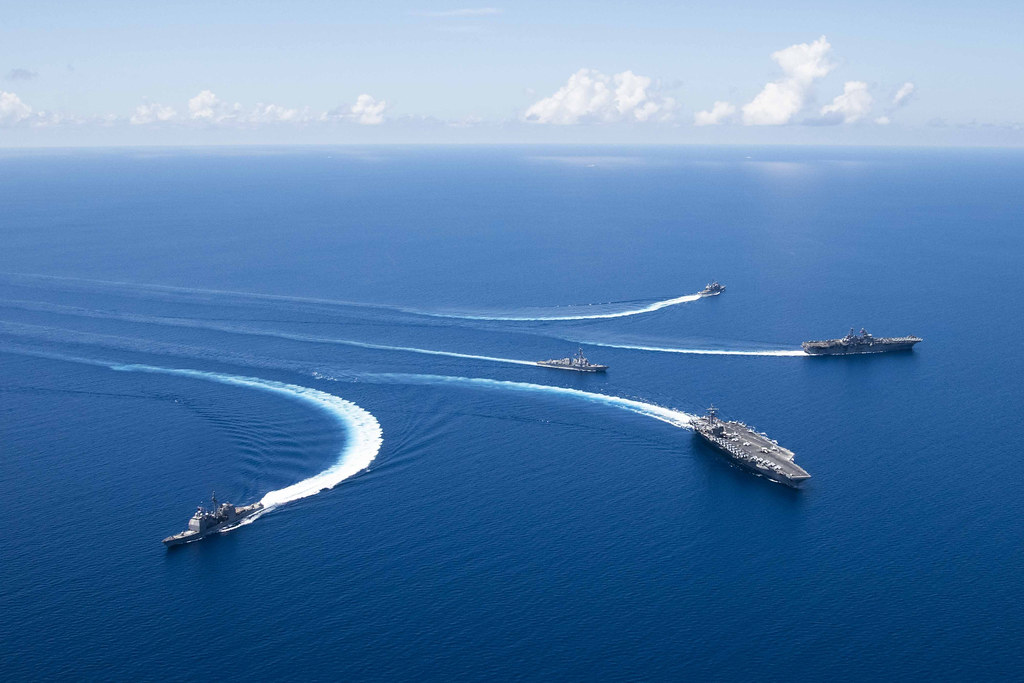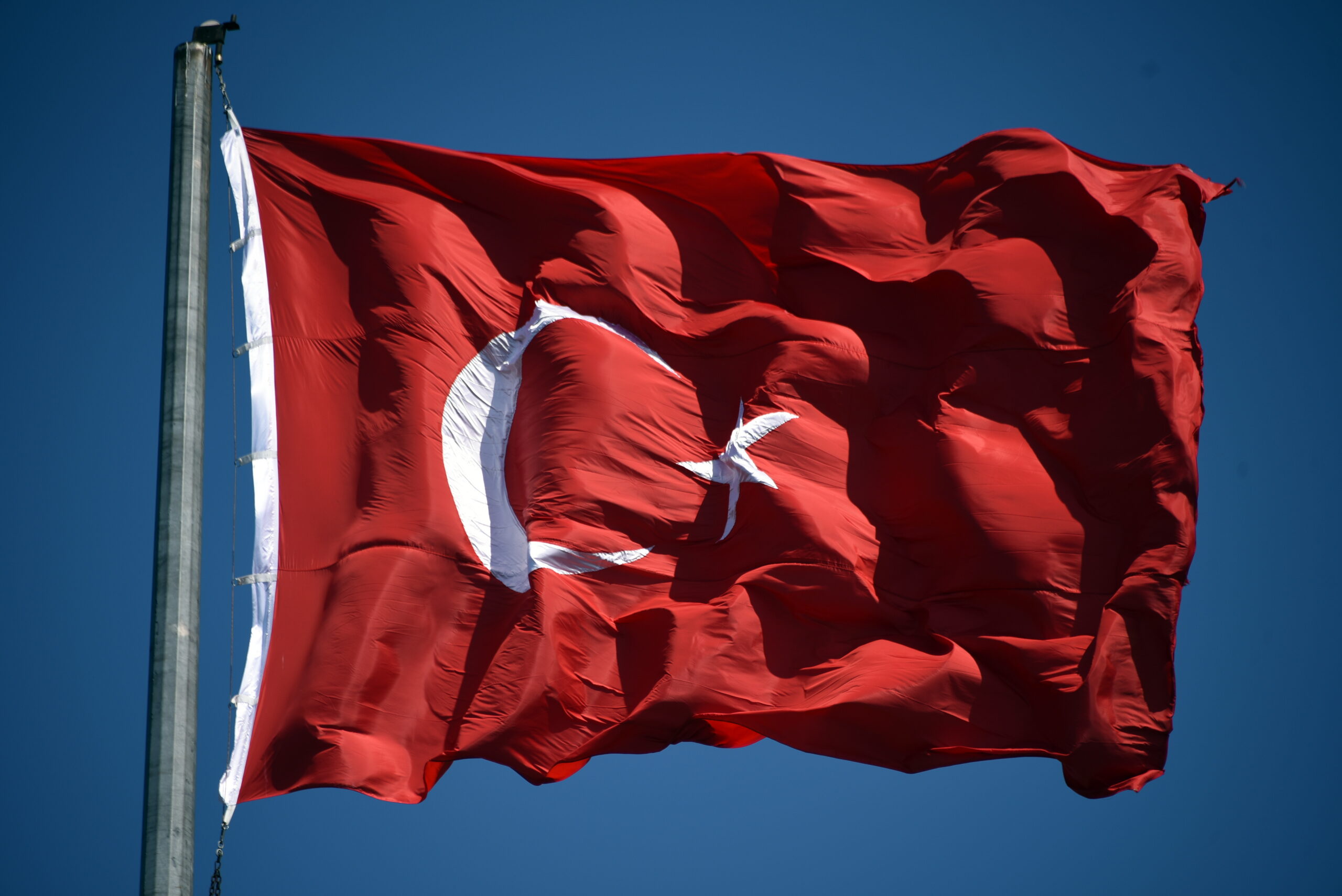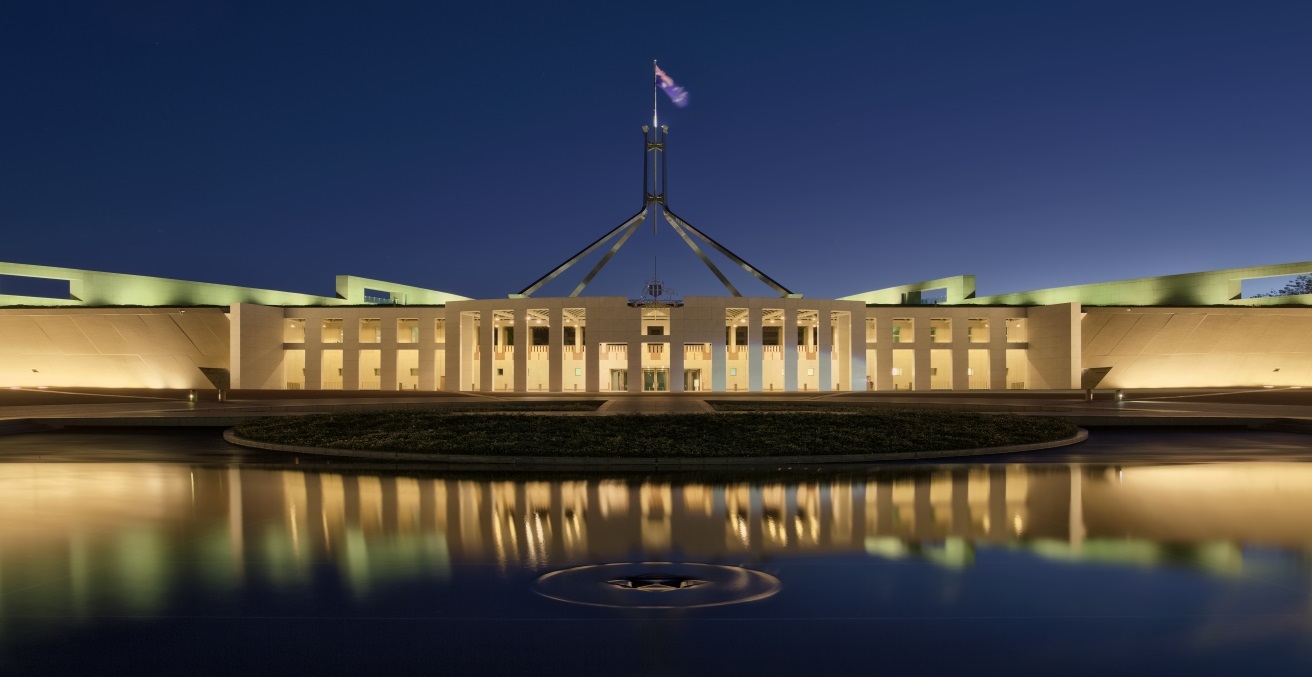ASEAN currently stands at a decisive crossroads. On one side, the region faces intensifying external pressure from great-power rivalry in the South China Sea. On the other, it remains burdened by unresolved internal problems: the border conflict between Cambodia and Thailand, the humanitarian crisis of the Rohingya in Myanmar, and the maritime dispute over the Ambalat Block between Indonesia and Malaysia.
Reaching a common perception among ASEAN states on the South China Sea has become an urgent necessity to address external challenges and demonstrate the bloc’s capacity to resolve internal conflicts through dialogue and peaceful settlement.
External powers shaping ASEAN’s dynamics.
The South China Sea is a vital international trade artery worth over US$3 trillion annually, and equally rich in energy and natural resources. China’s sweeping “nine-dash line” claim, struck down by the Permanent Court of Arbitration in 2016, remains rejected by Beijing, fueling ongoing tensions. Since 2002, ASEAN and China have been negotiating a Code of Conduct (COC), yet progress has been painstakingly slow. Disagreements over scope and legal standing remain unresolved. Meanwhile, aggressive maneuvers at sea, such as “ramming” incidents and harassment of Philippine vessels by Chinese coast guard ships, have created tangible risks of escalation. In a recent development, a U.S. destroyer was forced out of the Scarborough Shoal area following a confrontation with Chinese patrols, underlining the volatile and layered tensions in these contested waters.
Competition for influence in Southeast Asia has also intensified with the entry of European actors, particularly France, which has sought to expand its strategic footprint by offering economic, technological, and defence benefits. Indonesia’s multi-billion-dollar purchase of French Rafale fighter jets illustrates this shift. For Jakarta, the deal is not only about modernising its military arsenal but also about broadening strategic partnerships and diversifying security support beyond the traditional poles of the United States and China. France’s presence highlights a new layer of geopolitical rivalry in ASEAN, where member states must carefully balance short-term benefits with long-term consistency in upholding collective principles.
Without a unified stance, ASEAN risks losing momentum in shaping the narrative and outcome of this dispute, as well as those to come.
The necessity of collaboration
A shared ASEAN perception would strengthen collective legitimacy in upholding UNCLOS and the arbitral ruling. By speaking with one voice, the bloc would enhance its moral and political leverage in pressing parties to respect international law. This cohesion is not only about legal principle but also about preventing dangerous miscalculations that could spiral into armed confrontation.
A significant moment in regional security cooperation occurred when the Philippines and India held their first-ever joint naval exercise in the South China Sea, signalling a collective effort to uphold maritime sovereignty and international law through security partnerships. Similarly, Exercise “Alon 25” involving Australia, the United States, Canada, and the Philippines, took place near Scarborough Shoal, symbolising collective deterrence against unilateral aggression.
The Ambalat dispute: a framework for diplomatic cooperation
In the broader context of peaceful resolution, the dispute over the Ambalat block between Indonesia and Malaysia offers a valuable lesson. While both nations lay claim to the resource-rich territory, Indonesian President Prabowo Subianto and Malaysian Prime Minister Anwar Ibrahim have openly committed to resolving differences through dialogue and peaceful means. This bilateral understanding demonstrates that when there is political will at the highest level, potential disputes can be contained without sacrificing bilateral ties. Nations, particularly in the ASEAN region, should look to Ambalat as a concrete precedent that a peaceful resolution is both possible and practical. Such a framework could be used in Myanmar’s Rohingya crisis and the Cambodia–Thailand border tensions, or the broader South China Sea issue. Nevertheless, the challenges to consensus remain formidable. National interests vary widely. The Philippines and Vietnam are taking a more assertive stance against China, while Malaysia has opted for pragmatism to preserve its economic ties. The absence of a shared spirit has often been evident in ASEAN’s reluctance to issue strong collective statements at international forums. Meanwhile, Philippine officials have stressed that Beijing must address the “trust deficit” caused by its aggressive actions at sea while also warning that diplomacy alone is insufficient without credible deterrence measures.
The path forward
Moving forward, ASEAN must take several critical steps. First, it should formulate a binding consensus that commits all members to international law, including the recognition of UNCLOS, the renunciation of force, and strong support for accelerating the COC negotiations. Second, ASEAN needs to institutionalise platforms for discussing not only the South China Sea but also other pressing issues—such as Myanmar, Ambalat, and the Cambodia–Thailand border—so that peaceful resolution becomes a norm, not an exception. Finally, the bloc must strengthen transparency and crisis management mechanisms, such as coast guard dialogues or hotlines, to reduce the risk of miscalculation.
ASEAN’s relevance in the eyes of the world depends on its ability to speak with one voice. The South China Sea is the stage upon which this credibility will be tested. Suppose ASEAN can transcend its internal differences and unify around the principles of international law. In that case, it will enhance its bargaining power with both Beijing and Washington, while preserving the integrity of the regional order. Success in forging a common stance on the South China Sea will create momentum for resolving Ambalat peacefully, reviving dialogue on Myanmar, and providing a model for Cambodia and Thailand. Failure, however, risks further fragmentation, diminished global credibility, and an ASEAN that drifts toward irrelevance. The choice before the bloc is stark yet simple: unify perceptions, or succumb to fragility.
Akhmad Hanan is an independent Indonesian researcher specialising in geopolitics and energy. He holds a Bachelor’s degree in Oceanography from Universitas Diponegoro (UNDIP) and a Master’s in Energy Security from Universitas Pertahanan (UNHAN) – the Indonesian Defence University.
This article is published under a Creative Commons License and can be republished with attribution.





